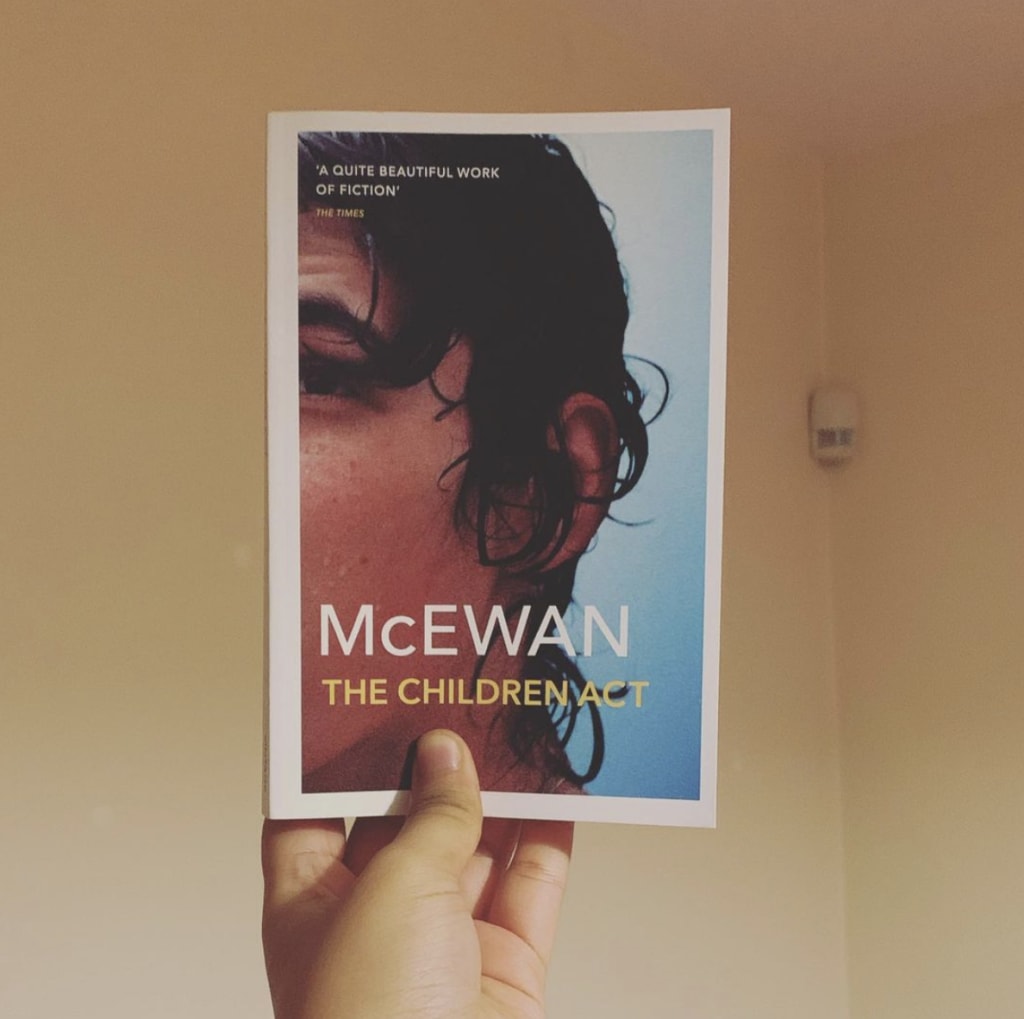Book Review: "The Children Act" by Ian McEwan
5/5 - emotionally destructive, tragic and beautiful...

I have spent a lot of my time this year reading books by different authors that I personally never would have read in my teen years. For example: when I was in my mid-teens, I read Ian McEwan’s book “Atonement”. I am not going to lie to you when I say that “Atonement” was one of the most boring books I had ever read. It was mainly because to me, it just did not feel realistic. I stuck it in the pile with other books I could not find any realism in though they claimed to depict realism - books such as: “The Unbearable Lightness of Being”. However, this year I have read so many books by Ian McEwan that eighteen year old me would be mad as hell if she saw this. I did try to read “Atonement” again but I just think that I personally don’t like that book. But books such as “The Cement Garden” and “On Chesil Beach” have been great reads to get stuck into. Often dark and tragic with an underlying extended metaphor of some kind, I really grew to appreciate the writing of Ian McEwan and his attempts to make a very literary kind of fiction where the main factors are the emotions that we cannot articulate for they are so complex.
“The Children Act” is a book about a High Court judge named Fiona Maye. Fiona is having problems with life and we learn quite a bit about her as the book is narrated in the limited third person from her life. Fiona’s new case is a strange one though and she does not know if she can be highly effective. But the case itself is getting a lot of press and she is already in the thick of it before she knows it. A seventeen year old boy named Adam is close to his eighteenth birthday and he is very very sick with Leukaemia. A blood transfusion could save his life and yet, he doesn’t want it. Up to his parents instead of really up to him - this book details the beliefs that stop Adam from receiving treatment. Medical professionals take the family to court in a chance that they could tear apart this strange practice and get back to saving the boy. But, as his condition is not getting any better without the transfusion, Fiona must work quickly so that the child does not die whilst they are in court or deliberating.
The book seems to be an extended metaphor for taking one’s own life into their own hands. There are so many moral questions that are constantly being asked such as: is it viable to let a very sick person choose upon their own life and whether they live or die? However, the claim that the child receive medical care against their will could be seen as the assault of a body. There are many questions and I like the way they are intertwined in the storyline and not simply left there and not come back to.
In conclusion, I thought this book was one of the most thought provoking by Ian McEwan and though I did like books like “Nut-Shell” and “The Cement Garden”, I have to say that Ian McEwan writing about children with such an incredible amount of detail on their being is absolutely brilliant in “"The Children Act.” This book was emotionally destructive and when you find out the ending, there is a certain amount of it that makes sense. A truly great book of our modern times - I hope that this is not it for the harrowing reads I find by Ian McEwan.
About the Creator
Annie Kapur
200K+ Reads on Vocal.
English Lecturer
🎓Literature & Writing (B.A)
🎓Film & Writing (M.A)
🎓Secondary English Education (PgDipEd) (QTS)
📍Birmingham, UK






Comments
There are no comments for this story
Be the first to respond and start the conversation.